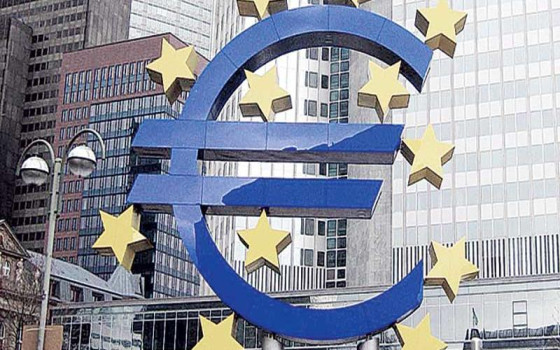
Inflation reaches its peak in the first half of next year in Europe, which is preparing for the digital euro to become the first "digital" currency for the European Central

- Europe and Arabs
- Tuesday , 22 November 2022 16:14 PM GMT
The head of economic policy at the European Central Bank, Francois Villeroy de Gallo, said that inflation will peak in France and Europe in the first half of next year.
Inflation in Europe last October reached 10.6%, which is a historic figure, and is expected to increase by another 2%.
"It is inappropriate to allow inflation to stabilize. It is a disease of the economy, and inflation should peak in Europe by the first half of next year," said Villeroy de Gallo.
Villeroy de Gallo, who also heads the Bank of France, added that inflation should return to around 2% - the ECB's target - within two to three years, up from 10.6% year-on-year in October.
Inflation in the continent is affected by the energy crisis in Europe as a result of the war in Ukraine, especially in light of the increasing possibilities of the old continent entering the tunnel of stagnation in light of the continuation of the policy of raising interest rates to control the growing inflation.
Earlier, European Central Bank policy maker and Bank of Finland Governor Olli Rehn said that the risks of stagflation for the eurozone have increased significantly over the recent period.
Rehn said that despite the ECB's efforts to reduce inflation, reducing it will require avoiding high wages, as this would keep inflation expectations stable, as well as improve debt sustainability.
This comes while the development of digital currencies for the European Central Bank is a major goal of global powers, and therefore the President of the European Central Bank (ECB), Christine Lagarde, confirmed that the European Commission is ready to present a regulatory framework for the digital euro, in what will be the first digital currency of the European Central Bank (CBDC). .
The Spanish newspaper "Cryptonotcias" indicated that the agencies responsible for developing the digital euro currency should determine the status of the legal tender for the new currency and amend some issues related to the privacy of the currency.
In this regard, Lagarde announced that the European authorities have already analyzed the risks and benefits of a central bank digital currency (CBDC) at the continental level, and indicated that, for the time being, we are focusing on the new design and its inclusion in a legal framework, adding, “I look forward to the legislative proposal to establish The digital euro that the European Commission will soon propose.
On privacy issues for the digital euro - one of the points of greatest concern to investors and entrepreneurs - Lagarde made it clear that there would be no complete anonymity as in the use of cash, stressing the ECB's commitment to combating money laundering.
Experts from the European Central pointed out that "we must provide at least a level of privacy equal to the level of current electronic payment solutions." However, he did not deny the idea of providing privacy for small payments that do not represent risks to the local financial system.
Source: The Seventh Day website












No Comments Found